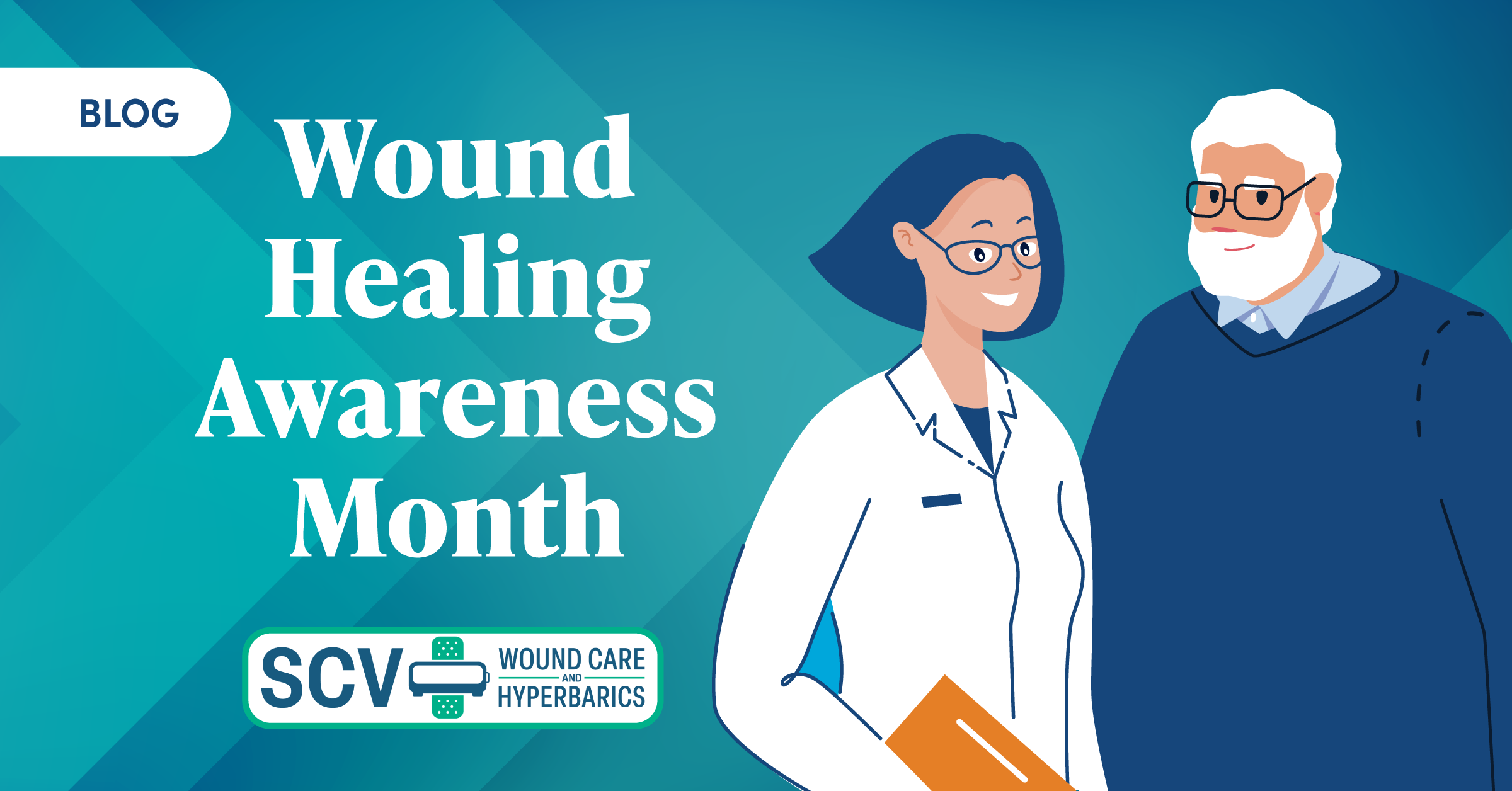To explain why Wound Care is overwhelmingly essential to the lives of thousands of people, one must truly understand what exactly Wound Care is. Many people believe that they know what it entitles; stitches, staples, wraps, and ointment. However, that is far from the reality of it. Wound Care is the complete management of a non-healing wound. Specialized wound care programs also play a vital role within the communities they serve. June is Wound Healing Awareness Month (WHAM), a time to recognize the challenges faced by individuals with non-healing wounds and increase awareness of how specialized care can save limbs and lives.
In the U.S, Nearly 10.5 million people suffer from non-healing wounds, including diabetic foot ulcers, venous ulcers, and pressure injuries. Early evaluation and treatment is very important to help avoid complications including infection, sepsis, and even amputation.
One part of wound care is understanding the underlying comorbidities that patients have. The most common of these comorbidities is diabetes, which can greatly impact wound healing. Of the 34 million people in the U.S. who have been diagnosed, approximately 150,000 will lose a limb after a hard to heal wound becomes severely infected.
“In most cases, non-traumatic lower extremity amputations can be avoided,” said Dr. Ian R. Cook, at SCV Wound Care & Hyperbarics. “With early detection, proper evaluation and specialized treatment, most wounds can be healed in eight weeks or less. Our primary goal is to help patients avoid the drastic measure of removing a limb, foot, or toe.” In fact, 74% of patients are able to avoid amputation in a wound center.
At SCV Wound Care & Hyperbarics we treat a variety of wounds and conditions, including radiation injuries to the tissues following cancer treatment. Treatment modalities include debridement, or the removal of dead skin and tissue to stimulate healing; and hyperbaric oxygen therapy, which can speed healing by carrying extra oxygen to the blood, organs and tissues. Our physicians may also recommend compression stockings, artificial skin, or negative pressure therapy.
Here are six things you need to know about specialized wound care:
- Seek Professional Help Early: If you have a wound that hasn’t healed within 3-4 weeks (or sooner if you have diabetes), consult a doctor for a referral to a wound care specialist. Don’t try to manage it on your own, as early consultation can prevent many complications.
- Daily Foot Inspection: Inspect your feet daily and keep them clean. If you get pedicures, ensure that all instruments used are thoroughly sanitized to prevent infections.
- Awareness of Diabetic Neuropathy: Diabetic neuropathy can cause a loss of sensation in the legs and feet due to nerve damage from high glucose levels. This means chronic wounds can go unnoticed and develop severe infections. Regularly check for any wounds to prevent complications.
- Control Blood Glucose Levels: Maintaining controlled blood glucose levels is crucial. High blood glucose impairs the body’s ability to fight infections and slows the healing process. Proper glucose control also helps prevent arterial hardening, vessel narrowing, and nerve damage.
- Hyperbaric Oxygen Therapy (HBOT): If you’re a cancer patient experiencing the late effects of radiation treatment, even years later, ask your physician about HBOT. This therapy can help heal damaged skin and tissues by increasing oxygen-rich blood flow to affected areas.
- Healthy Lifestyle Choices: Smoking, excessive alcohol consumption, poor diet, and obesity contribute to the development of chronic wounds and hinder healing. Adopting a healthier lifestyle can significantly improve wound healing and overall well-being.
If you or someone you love is suffering from a non-healing wound, contact our team of experts at SCV Wound Care & Hyperbarics. We work with referring physicians to evaluate and treat non-healing wounds as quickly as possible, before they become life-threatening conditions.

